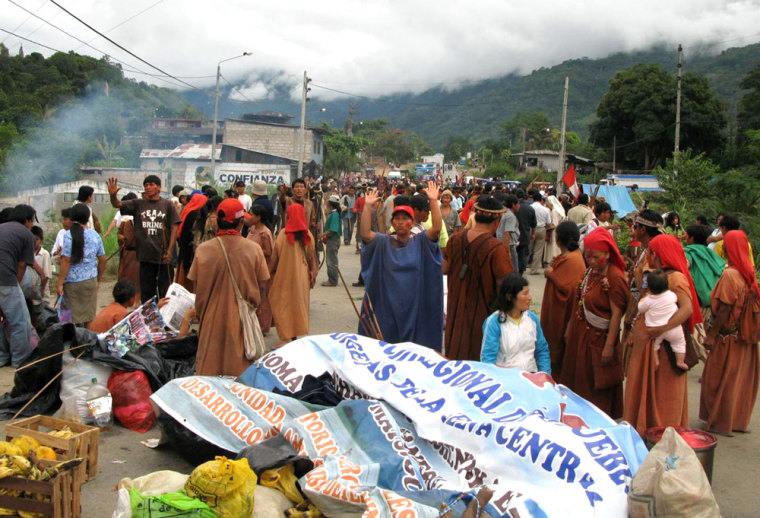In a conciliatory move, Peru's government told Amazon Indians on Monday that it will ask Congress to revoke decrees that native groups say would make it easier to exploit their lands for oil, gas and other development.
Indigenous peoples' anger over the decrees spurred two months of on-and-off blockades of roads and rivers that turned violent on June 5 when police opened fire on activists at a roadblock.
At least 24 police officers and nine civilians were killed, according to government figures. Indigenous leaders said at least 30 Indians were killed and accused police of hiding bodies.
Environment Minister Antonio Brack announced the concession after a delegation led by Cabinet chief Yehude Simon met with indigenous leaders Monday in the central jungle town of Mazamari.
Brack said the government also offered to end a state of emergency and curfew in Amazonas state, where the June 5 melee occurred.
Brack said Indian leaders promised in return to end a blockade that has cut a key road into the central Amazon. But other protests, including the occupation of a highlands airport, persisted.
A radio station, Radioprogramas, said Simon also asked the Indian leaders' forgiveness for the deaths.
Protest leader seeks refuge
Although Peru's main Amazon Indian federation, AIDESEP, did not participate in Monday's talks, some indigenous leaders expressed hope the government's gesture would lead to negotiations that it previously spurned.
"We don't reject dialogue. On the contrary, dialogue and peace in the Amazon is what we want," Ruben Binari, a leader of the Machiguenga people in the Urubamba region, told The Associated Press.
Congress indefinitely suspended the controversial decrees last Wednesday, a day ahead of a nationwide wave of mostly peaceful anti-government protests.
The decrees, including a forestry law widely interpreted as promoting biofuel crops and logging, were among several promulgated by President Alan Garcia to comply with a free trade agreement with the United States that took effect in January.
The leader of the Amazon protests, AIDESEP President Alberto Pizango, remained in Nicaragua's embassy Monday. He sought refuge there after sedition and rebellion charges were filed against him. Nicaragua granted him political asylum but he has not received safe passage out of Peru.
